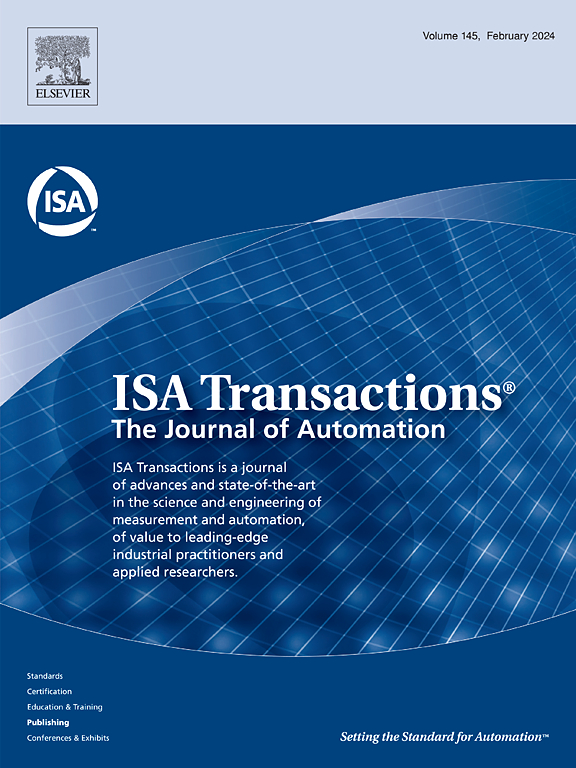PCLOS based fractional-order sliding mode stochastic path following control for underactuated marine vehicles with multiple disturbances and constraints
IF 6.5
2区 计算机科学
Q1 AUTOMATION & CONTROL SYSTEMS
引用次数: 0
Abstract
This paper investigates the stochastic path following control of underactuated marine vehicles (UMVs) subject to multiple disturbances and constraints. Firstly, the complex marine environment in which UMVs navigate typically contains stochastic components, thus the multiple disturbances are categorized as slow-varying deterministic disturbances and stochastic disturbances. Secondly, a position-constrained line-of-sight (PCLOS) based fractional-order sliding mode stochastic (FSMS) control strategy is established to achieve path following control of UMVs. A PCLOS guidance law based on universal barrier Lyapunov function is proposed to ensure that the position errors remain within the constraint ranges, which is versatile for systems with symmetric constraints or without constraints. An FSMS controller based on fractional-order theory and sliding mode control is designed to improve the dynamic response speed of the system and effectively attenuate chattering phenomenon. A stochastic disturbance observer is developed to estimate the slow-varying deterministic disturbances in the stochastic system, and auxiliary dynamic compensators are used to mitigate the impact of input constraints. Lastly, theoretical analysis indicates that the closed-loop system is stable and the position constraint requirements are satisfied. Comparative simulations illustrate the effectiveness of the proposed control strategy.
基于 PCLOS 的分数阶滑动模式随机路径跟踪控制,适用于具有多重干扰和约束条件的欠驱动海洋车辆。
本文研究了受多重干扰和约束条件影响的欠驱动海洋车辆(UMV)的随机路径跟踪控制。首先,UMV 所处的复杂海洋环境通常包含随机成分,因此将多重干扰分为慢变确定性干扰和随机干扰。其次,建立了基于位置约束视线(PCLOS)的分数阶滑模随机(FSMS)控制策略,以实现 UMV 的路径跟踪控制。提出了一种基于通用屏障 Lyapunov 函数的 PCLOS 引导定律,以确保位置误差保持在约束范围内,该定律适用于有对称约束或无约束的系统。设计了一种基于分数阶理论和滑模控制的 FSMS 控制器,以提高系统的动态响应速度并有效减弱颤振现象。开发了随机扰动观测器来估计随机系统中缓慢变化的确定性扰动,并使用辅助动态补偿器来减轻输入约束的影响。最后,理论分析表明,闭环系统是稳定的,并且满足位置约束要求。对比模拟说明了所提控制策略的有效性。
本文章由计算机程序翻译,如有差异,请以英文原文为准。
求助全文
约1分钟内获得全文
求助全文
来源期刊

ISA transactions
工程技术-工程:综合
CiteScore
11.70
自引率
12.30%
发文量
824
审稿时长
4.4 months
期刊介绍:
ISA Transactions serves as a platform for showcasing advancements in measurement and automation, catering to both industrial practitioners and applied researchers. It covers a wide array of topics within measurement, including sensors, signal processing, data analysis, and fault detection, supported by techniques such as artificial intelligence and communication systems. Automation topics encompass control strategies, modelling, system reliability, and maintenance, alongside optimization and human-machine interaction. The journal targets research and development professionals in control systems, process instrumentation, and automation from academia and industry.
 求助内容:
求助内容: 应助结果提醒方式:
应助结果提醒方式:


